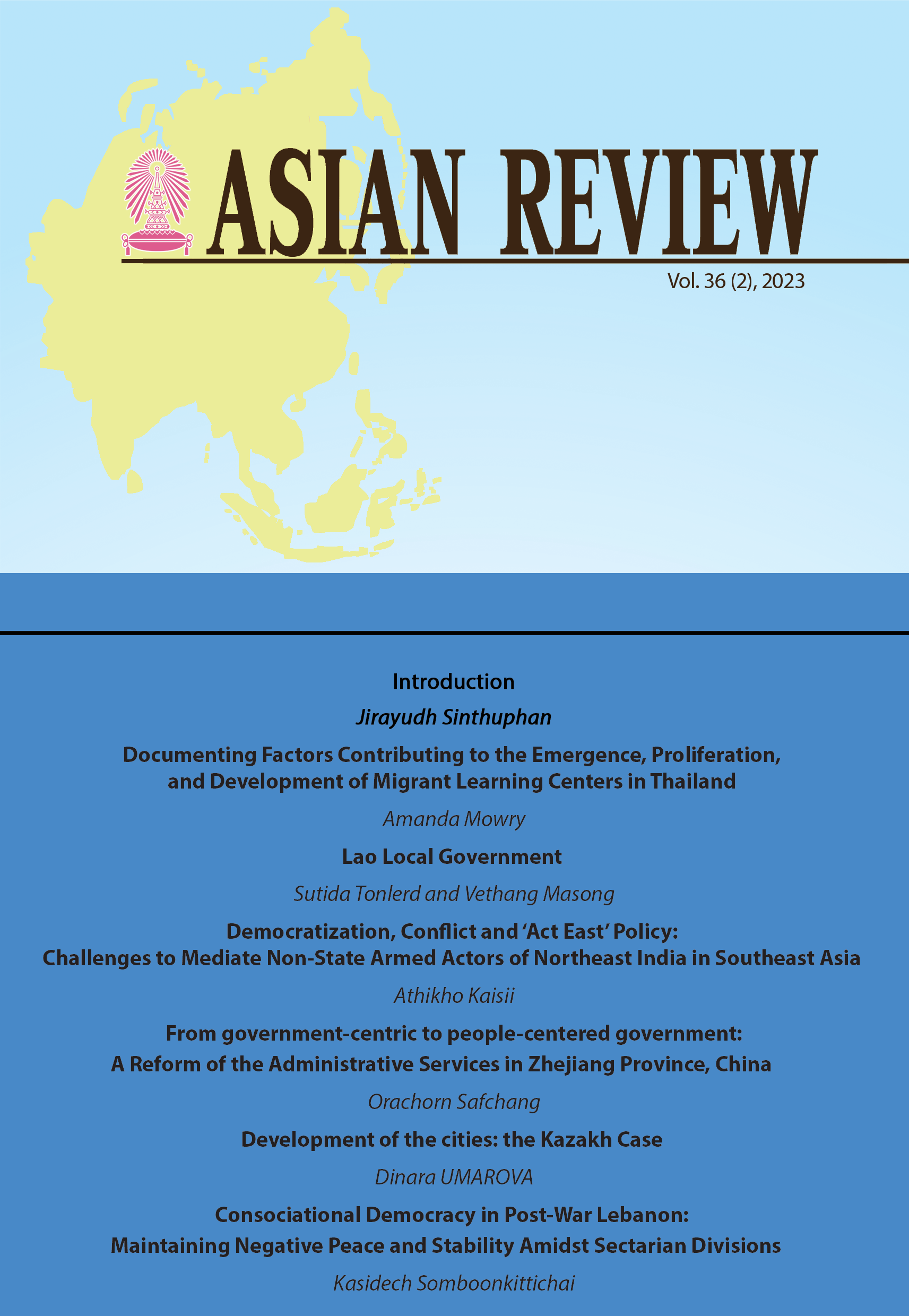Consociational Democracy in Post-War Lebanon:
Maintaining Negative Peace and Stability Amidst Sectarian Divisions
DOI:
https://doi.org/10.14456/arv.2023.10Keywords:
Consociational Democracy, Post-war Lebanon, Cleavages, Sectarianism, Negative PeaceAbstract
Is consociational democracy the only viable solution for maintaining direct negative peace and stability in contemporary Lebanon? This paper argues in favour of consociational democracy as the most effective approach to preserving direct negative peace and stability in post-war Lebanon. The rationale behind this claim stems from the impracticality and unsuitability of alternative solutions, particularly transformative liberal approaches, within Lebanon's specific context. Implementing such alternatives would jeopardise cooperation among elites representing different sectarian groups, leading to a perilous power vacuum and the potential for civil war reoccurrence. To contribute to the academic discourse, this paper systematically examines Lebanon's post-war regime and sectarian cleavages, identifying it as a consociational democracy through primary resources like the Lebanese constitution and the Taif Accord. Additionally, it critically analyses pertinent literature encompassing both qualitative and quantitative research, enriching the scholarly debate on this topic.
Downloads
Published
How to Cite
Issue
Section
License
Copyright (c) 2024 Instiute of Asian Studies, Chulalongkorn University

This work is licensed under a Creative Commons Attribution-NonCommercial-NoDerivatives 4.0 International License.
Published articles are under the copyright of the Instiute of Asian Studies, Chulalongkorn University. Partially or totally publication of an article elsewhere is possible only after the consent from the editors.







